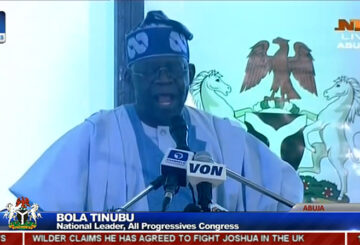Amid growing economic and geopolitical instability, central banks across Africa are turning to gold to safeguard their financial portfolios and protect their local currencies. This shift comes as the price of gold has surged, climbing from $1,900 per ounce in September 2023 to $2,500 just a year later. According to the World Gold Council (WGC), the demand for the precious metal is expected to rise further in the coming months despite its soaring price.

Economic experts, like Carlos Lopes from the Nelson Mandela School of Public Governance in South Africa, attribute this trend to the need for economic security. “In the last few years, because of inflation and stimulation packages, returns have been low. Gold, on the other hand, is rising in price as banks use it as a hedge against instability. It’s a smart investment,” said Lopes.
Africa’s gold production has increased by 60% since 2010, surpassing the global growth rate of 26%, according to the WGC. This has positioned the continent as a significant player in the global gold market, further encouraging central banks to increase their gold reserves.
Some countries, like Zimbabwe, have already embraced gold-backed currencies. In 2022, Zimbabwe introduced a gold-backed currency to curb inflation and reduce foreign exchange volatility. Other nations, such as Ghana and Uganda, have been purchasing gold from artisanal miners to strengthen their foreign currency reserves. Ghana, the continent’s largest gold producer, is also using the metal to pay for imported oil in a bid to alleviate pressure on its local currency and reduce fuel prices.
However, not all economists are convinced that gold alone can solve the economic challenges African countries face. The WGC recommends that countries hold onto gold for its long-term value and its ability to diversify portfolios during times of crisis.
Experts like Bright Oppong Afum, a senior lecturer at the University of Mines and Technology in Ghana, see the shift toward gold as part of a broader strategy for financial independence. “African countries are looking to reduce their dependence on global financial systems, which often come with risks of sanctions or other economic penalties,” Afum explained.
Despite these moves, some African countries still struggle with internal gold trading challenges, where locals trade gold for immediate financial relief, often at a loss. Afum pointed out that “while some Africans understand the value of gold, many trade it for daily needs, often selling it to buyers who exploit them.”
As the African Continental Free Trade Area (AfCFTA) rolls out initiatives like the Pan-African Payment and Settlement System, which enables countries to trade using local currencies, experts suggest that reducing dependence on gold may eventually become possible. For now, however, gold remains a critical asset in the continent’s financial strategies.
- Tags: Africa, Central Bank, Economy, gold





